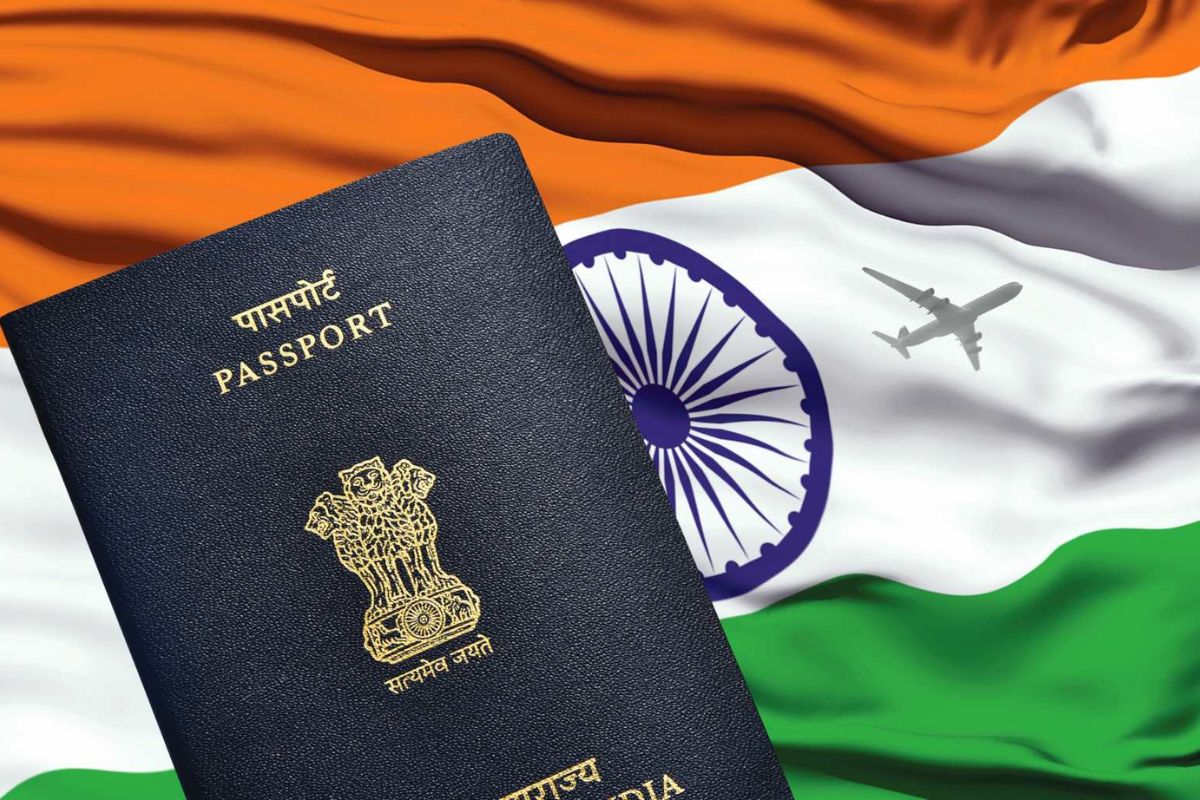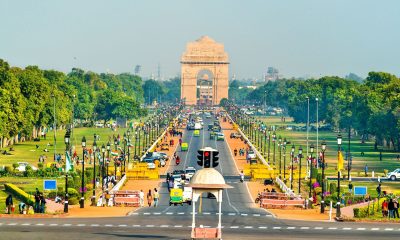Career Tips
Ultimate Guide On Studying In India: Requirements, Student Visa & More

Studying in India is a life-changing experience since international students get to witness a multicultural society. Additionally, students will receive standardized higher education that has stood the test of time.
Diversity in India extends beyond languages, festivals, food, and culture to education. Indian universities provide a wide range of courses, from STEM like Engineering and Technology to non-STEM like Commerce, Business Management, Social Sciences, and Liberal Arts.
India’s educational institutions adapt their teaching methods to the changing globe. Institutes now use blended learning to balance theoretical learning with debate, dialogues, and practical learning.
The colleges host seminars, exchanges, industrial visits, and summer internships. The instructional technique promotes rational and analytical thinking. Students graduate with the skills to succeed in the workforce.
Professionals worldwide use English as their main language. It provides the much-needed common language for varied people. English is the primary language for instruction and intellectual interchange at Indian universities, which allows international students to benefit from higher education regardless of their language ethnicity.
In addition to quality, affordable higher education in India is appealing. Many Indian universities offer cost reductions, making quality education affordable for low-income students. Thus, those who want to study abroad but can’t afford it can come to India and acquire a great education at little cost.
The Indian higher education system goes beyond courses to 360-degree learning. It allows holistic academic and personal development.
Indian Student Visas Requirements
All international students in India need a visa. The Indian Embassy issues a Student Visa to allow foreigners to study in India at an approved educational institution.
International students can get a five-year student visa from the Indian consulate/embassy if they meet the following requirements:
- They will pursue regular, full-time academic courses in India.
- They have a valid passport that does not expire during the period of their studies in India.
- They have proof of admission to a full time regular academic course in a recognized educational institution in India and evidence of financial support.
If there is any dependent family member/spouse accompanying the student to India, they will need to apply for an Entry Visa (not the same as Tourist Visa). The expiry date for this visa will be the same as that of the principal visa holder.
Documents required for Indian Visa:
Once a student receives proof of admission to a full-time regular academic program at a recognized Indian educational institution, they can download the visa application form from the Indian embassy’s website. The filled form can be mailed or brought to the Indian embassy in their country.
Visa processing documents differ by country. For special needs, contact the Indian High Commission in your country. You’ll need these documents to get your visa:
- Signed copy of completed visa application form
- Recent passport size photographs (2 in nos.)
- Verified admission offer letter from a recognized university
- Signed and verified proof of financial support with documentary evidence showing the availability of the equivalent of a 1st-year college fee plus US$ 2,000/- in the bank account.
- Copy of passport
Eligibility for Study in India
Today, leading universities in India attract students from throughout the world. Students can simply gain admission to start their education by meeting each institute’s qualifying requirements.
Indian higher education has four program levels with general eligibility requirements. The eligibility requirements vary by institute, discipline, and course, therefore international students should consult their websites.
Indian academic levels have the following eligibility requirements:
Undergraduate/Bachelor’s
The undergraduate program takes 3-5 years. After four or five years, students receive a bachelor’s degree in medical, pharmacy, engineering, or architecture. The minimum qualification for these courses is 10+2 years of schooling with excellent grades. Some schools need entrance exams and interviews.
Postgraduate/Master’s
Indian students can only apply for postgraduate courses after earning a BA. In Indian universities, postgraduate studies last 1-2 years. A minimum Bachelor’s percentage and/or entrance test and interview may determine admission.
Doctorate
Doctoral studies are for those who desire to research a subject or course in depth. PhDs take 3–6 years to complete. PhD candidates must have a postgraduate degree. Following this comes an exam and interview to determine admission.
Diploma/Certificate courses
Diploma/Certificate courses are short-term regular or specialized courses for students interested in vocational education. Such courses require 10+2 years of study. Diploma or certificate courses in computer science, yoga & naturopathy, Indian dance & music, and others last 3 months to 1 year.
While these are the usual requirements, students must examine the fundamental eligibility criteria for any course at a particular institute before applying to determine if they meet them.
Note that only passport-holding international students receive admission offer letters. If you want to study in India as an international student without a passport, you must apply ASAP. Passport issuance takes three to 30 days, depending on the country.
Requirement to Study in India as an International Student
Any student studying abroad wants a smooth ride. Student admissions in Indian institutes are quick, effective, and easy.
Foreign students can choose from over 17,000 colleges and universities in India. Every school has its own program application process. Check your university’s website for the admission process for your selected course, which is detailed there.
Four types of universities in India have different admission requirements and procedures. The four types of Indian universities are:
- Central Universities – Administered by the government of India
- State Universities – Administered by state government
- Deemed Universities – Same academic status and privileges as a university given by University Grants Commission (UGC)
- Private Universities – Privately owned UGC-approved universities
Check submission dates and deadlines and submit all essential papers. Reading the guidelines carefully can save you time, money, and effort.
As expected, you must submit academic transcripts and documented confirmation of study level when applying. For graduate and postgraduate degrees, several universities require essays, letters of recommendation, and/or statement of purpose. You can include any more relevant documents/proofs to your application.
Application Process for Foreign Students
Majors and disciplines have different admissions requirements. When applying to Indian colleges and universities, check their websites for admissions requirements and processes.
Check whether your universities offer direct admission. International applicants can apply directly to Indian universities for most programs. The Direct Admission of Students Abroad (DASA) programme allows students to apply to the National Institute of Technology and other centrally financed universities (except the Indian Institutes of Technology) for engineering, architecture, or planning degrees.
DASA gives Pakistani, Sri Lankan, and SAARC students a 50% tuition waiver. Updates and application deadlines are on the DASA website.
Documents Required for Indian Student Visa
You will be asked to submit your academic certificates and some other documents whenever you submit your request for admittance to a university to study in India. Following is a list of the specific documents you may be required to submit:
- Photocopy of valid passport
- Duly completed admission application form
- Certified copy of academic transcripts
- Curriculum vitae or comprehensive resume
- Language proficiency test scores (for non-native English speakers)
- Letter of Motivation or Statement of Purpose
- Proof of financial capability (bank statements or letter of sponsorship)
- Recommendation letters (from former professors or employers)
Some Indian universities require standardized test scores for particular courses. Ask your Indian university if you need to take any of these examinations to study there. Therefore, you can prepare and take those required tests a few months before admission opens. The best Indian universities require scores in the following exams, if applicable:
- GRE (Graduate Record Examination)
- GMAT (Graduate Management Admission Test)
- SAT (Scholastic Aptitude Test)
- TOEFL (Test of English as a Foreign Language) IELTS (International English Language Testing System)
The Joint Entrance Examination (JEE) is required to apply to IITs. The IITs consider your exam score and rank for undergrad admission. JEE is usually held in January–June.
Most Indian universities have their own undergraduate admissions tests, but the SAT is becoming more popular. More Indian universities accept SAT scores for admission. SAT scores can be transmitted to Indian universities by the College Board (USA) online for free. SAT results are used to grant merit-based scholarships to Indian and international students.
Admission Timeline for Foreign Students in India
Many undergraduate admissions windows open in April and close in June, just before the start of the academic year. Some colleges begin accepting applications as early as October, with entrance exams beginning as early as December. Check your selected university’s website or call its admissions office to confirm application dates and deadlines.
A quick look at the general admission timeline for international students:
- November – Take the required standardized tests (IELTS/TOEFL/GRE/GMAT/SAT/JEE)
- December – Collect the relevant exam scores and results for application
- January – Start applying to selected universities
- March – Submit completed application before closing date
- April – Expect to receive responses on your application
- May – Successful applicants can start arranging for their finances, student visa, accommodation and travel to India
- July – Academic session starts
Study in India Scholarship
Every year, millions of international students apply to study in India from Bangladesh, Nepal, Sri Lanka, Bhutan, Myanmar, Maldives, Afghanistan, the Middle East, Gulf countries, African countries, and Latin American countries. Many of them are unaware of the scholarships available from the Indian government and educational institutions.
The following are some well-known scholarship opportunities for international students to study in India:
General Scholarship Scheme
The Indian General Scholarship Scheme (GSS) provides undergraduate, postgraduate, and research scholarships to Indian universities. The ICCR provides it to overseas students. All fields except medicine are eligible for scholarships. To qualify, aspirants must speak English well since Indian colleges teach in English. Selected candidates get a grant that includes monthly living allowance, house rent allowance, medical benefits, a yearly Contingent Grant, and thesis and dissertation expenses once.
SII Scholarship
SII Scholarship is a partial or fully funded scholarship for international students to study in India. It is awarded by the Government of India. International students may take advantage of this scholarship by appearing in an Ind-SAT examination. This scholarship awards USD$ 3500 per year for each selected student.
AYUSH Scholarship
International students wishing to pursue undergraduate and postgraduate courses in Ayurveda, Yoga, Unani, Siddha and Homeopathy in India may apply for the AYUSH Scholarship. It is a fully funded scholarship given by the Government of India.
KIIT University International Scholarships
KIIT University directly funds the International Students Scholarship Scheme to help international students apply to study there. The scholarship is based on academic merit, including English fluency, appropriate work/research experience, and university development.
Indian School of Business (ISB) International Scholarships
Indian School of Business offers tuition fee waivers to deserving postgraduate applicants with limited financial resources. Merit, financial need, and minority cultural background determine these waivers at admission.
Sikyong Professional Scholarship Program in India
The Sikyong Professional Scholarship Program (SPSP) aims to support talented Tibetan students from India, Nepal, and Bhutan who wish to pursue professional degrees at top colleges, institutes, and universities in India.
Tuition Fees in India
Indian universities tuition fees vary. While government-run central universities have affordable tuition, privately owned Indian universities can determine their own fees. Various institutions have different fees. International students could expect to pay INR 250,000–INR 600,000 for degree studies each year. Student housing is cheap at several schools. Additionally, private renting is affordable.
A rough estimate of course tuition:
- Undergraduate courses – INR 2-8 lakhs per year (approx. USD 2,500 to 9,500)
- Postgraduate courses – INR 3-15 lakhs per year (approx. USD 4,000 to 20,000)
- MBA courses – INR 5-30 lakhs per year (approx. USD 6,500 to 41,000)
- Medical courses – INR 5-20 lakhs per year (approx. USD 6,500 to 26,000)
(Please note that these are approximate ranges and actual fees may vary based on the institution and the degree of study. To acquire accurate information, it is recommended that you visit the institution’s website or contact them directly.)
International students also need to consider health insurance costs. India requires international students to carry health insurance. Those with health insurance in their home country must verify it in India. If it’s invalid, they must buy one.
While tuition and living expenses are minimal, financially disadvantaged students may receive scholarships, financing, and grants. International students on student visas in India cannot work, thus they must organize their budget.
Average Cost of Living in India
The cost of living in India is continuously rising, yet it remains lower than in other popular study destinations such as the United States, United Kingdom, Canada, France, and Germany. However, it is very high in the two major cities of Delhi and Mumbai, where the majority of international students study in India. The following are some average costs to help prospective international students budget for their expenses:
- Monthly rent (1 bedroom apartment): 15000
- Utilities (monthly average): 5000 INR
- Monthly public transport pass: 3000INR
- Food: 4000 INR
Renting at less posh neighborhoods and cooking food at home may reduce the cost of living slightly. Majority of international students choose to live in student residence halls and avail scholarships or grants to the extent possible.
Jobs in India for Foreigners
The Indian government does not allow international students to work while studying, despite its many initiatives. However, student visa holders can train and intern. The student visa does not allow Indian work.
Employment visas allow international students to work. Jobs are available in technology, education, healthcare, hospitality, and more. They require an immigration permit and a work offer from a registered company to qualify. The industry, work position, geography, skills, and experience affect salaries.
Popular jobs for international students and projected salaries in India:
- Information technology (IT) INR 10 L – 30L
- Teaching INR 5 L – 20 L
- Hospitality & Tourism INR 3 L – 15 L
- Medicine & Healthcare INR 5- 30 L
Top Universities in India
India is home to some of the best international universities specializing in multiple disciplines, from science and technology, to the arts and social sciences. Join ranks with tomorrow’s leaders by studying at one of these top institutes. Following are some of the most renowned universities in India:
- Indian Institute of Science (IISc), Bangalore
- Indian Institute of Technology (IIT), Bombay
- Indian Institute of Technology (IIT), Delhi
- Indian Institute of Technology (IIT), Madras
- Indian Institute of Technology (IIT), Kharagpur
- Indian Institute of Management (IIM), Ahmedabad
- University of Delhi, Delhi
- Jawaharlal Nehru University, Delhi
- Jadavpur University, Calcutta
- Calcutta University, Calcutta
- Jamia Millia Islamia, New Delhi
- DY Patil University, Navi Mumbai
- Amrita Vishwa Vidyapeetham, Coimbatore
- University of Petroleum and Energy Studies, Dehradun
- Banaras Hindu University (BHU), Varanasi
- Vellore Institute of Technology, Vellore
- Regional College of Management, Bangalore
- Lovely Professional University, Punjab
- New Delhi Institute of Management (NDIM), Delhi
- Uttaranchal University, Dehradun
For more information about universities in India and courses offered here.
Best Courses to Study in India for International Students
India is known for its high-quality education and affordable tuition fees. The best courses to study in India for international students are Science, Engineering, Medicine, Social Sciences and Business Administration. It has some of the top international universities and institutes such as the IITs and IIMs teaching these courses.
- Liberal Arts Science – Jawaharlal Nehru University, University of Delhi, IIT Bombay, Jadavpur University.
- Science & Technology – IISc Bangalore, IIT Madras, IIT Delhi, IIT Kharagpur, IIT Roorkee, IIT Bombay.
- Medicine – All India Institute of Medical Sciences (AIIMS) Delhi, Post Graduate Institute of Medical Education & Research, Chandigarh.
- Management – IIM Ahmedabad, IIM Lucknow, IIM Bangalore, IIM Calcutta, ISB Hyderabad.
- Social Sciences – University of Delhi, Jawaharlal Nehru University, Jadavpur University.
Overall, India offers a wide range of courses and disciplines for international students. It is important to research and choose a course that matches your interests and career goals.






















